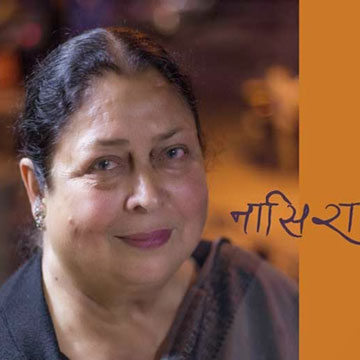 New Delhi:
New Delhi: Author Naseera Sharma, named last month for a Sahitya Akademi Award, laments that communal riots are continuing despite the partition of the country in 1947, saying her writings aim to disperse the differences between Hindus and Muslims. She also added that ideological differences between writers and the government, which came into sharp focus in 2015, would persist regardless of who was in power.
"India after Independence has witnessed multiple communal riots, resulting in the loss of harmless lives, leaving people in a devastated staste. This shouldn't be happening anymore," Sharma, 68, who has been cited for her Hindi novel "Paarijat", told IANS in an interview.
"There have been riots in India since 1947. This shouldn't be happening. The partition made clear that those who wished to leave the country had the liberty to do so. Riots after partition do not make sense," an indignant Sharma contended.
"The situation now has been prevailing since 1947. The Hindus and Muslims are going through a troublesome time and my writing is an attempt to disperse the existing differences between them," the author added.
She was also upset over the people, especially the minority communities "still living under the shadow of the (2002) Gujarat riots which is embedded in their minds. Therefore, the people often feel insecure under the present government".
"Agar tum tarikh dekhoge to ye isi Sarkar ki nahi hai, har Sarkar ke daur mein aisa hota hai (If you examine it closely, then it (Gujarat) is not the only riot that has happened in India. Riots have occurred under other political parties (when they ruled)," the author noted.
"Riots have been happening in India till now. Earlier governments were not vocal...while this government has been pretty vocal, which often creates fear in the minds of the people," she added.
In 2015, many Sahitya Akademi winners either refused to accept their awards or even returned their awards to protest against the growing intolerance in the country. The situation is no different now, Sharma said.
"Understanding the depth of emotions or interpreting the meaning of the writers is not easy. Either you understand the message that we try to convey or else give us the freedom of expressing our views," Sharma contended.
In this context, she said that differences have always existed between writers and the party in power.
"Ye koi nayi baat nahi hai. Takrar toh lekhak aur Sarkar ke beech waqt waqt pe hota aya hai (It is not a new thing. There have always been differences in ideologies between writers and government," the author said.
"It is not just in the case of this government," she noted, adding that ideological clashes keep happening, at times upfront and at times beneath the surface.
"And it is also not true that all the people are against the present government. People were equally disappointed with the UPA government as well," she said.
At the same time, she noted that ideological differences exist in all the countries and are not just prevalent in India. "There are even ideological clashes and differences in a single party," she said, adding that India's advantage is that "we have the liberty to express ourselves, even our disappointments".
"And why restrict or limit the clash of ideologies only to writers? If anybody is not happy with anything, even if that person is not a writer. Everyone has the right to confront the government. There are many people who are not so privileged like us, they cannot leave the country. Where will they go? The government should look after what the common mass wants," the author maintained.
She believes that until and unless the government takes along with all the sections and categories of people, "there is bound to be conflict of ideology. The country belongs to all (of us). All should sit and discuss and bring solutions to problems".
 New Delhi: Author Naseera Sharma, named last month for a Sahitya Akademi Award, laments that communal riots are continuing despite the partition of the country in 1947, saying her writings aim to disperse the differences between Hindus and Muslims. She also added that ideological differences between writers and the government, which came into sharp focus in 2015, would persist regardless of who was in power.
New Delhi: Author Naseera Sharma, named last month for a Sahitya Akademi Award, laments that communal riots are continuing despite the partition of the country in 1947, saying her writings aim to disperse the differences between Hindus and Muslims. She also added that ideological differences between writers and the government, which came into sharp focus in 2015, would persist regardless of who was in power.